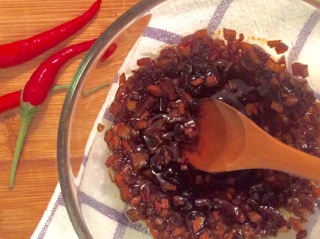You’re looking for a healthy snack, and you’re not sure what to choose. There’s a lot of yummy things out there, but the thought of giving up your favorite peanut butter and jelly sandwich or that other croissant in the fridge makes you go weak at the knees. There’s a solution, though. Coconut Oil. Coconut oil is a healthy alternative to traditional oils that you can use in your favorite recipes for baking, frying, sautéing, and more.
Coconut oil is one of those ingredients that people love to use, but they have no idea what they are really made of, or how to use it. It is obtained from the meat of the coconut , and can be used in a wide variety of ways. It can be used as a cooking oil, and is high in saturated fats and cholesterol. This is why a lot of people don’t like to use it in their diet, or they think that it can only be used for cooking. So, if you are not sure on how to use coconut oil , then take a look at this page, and learn more about how you can use this natural ingredient in your diet.
Coconut oil is one of the most common oils used in cooking, and for good reason. It adds a rich, sweet flavor to many meals, and is chock full of nutrients. One of the most valuable of these is Medium Chain Triglycerides (MCTs), which are known for their ability to provide energy for the brain and body. The oil is a natural source of fat, which is often recommended as a healthy alternative to animal fats. It is also believed that coconut oil can help you lose weight, since it improves your metabolism and increases calorie burning.
A Quick Look
Coconut oil is an edible oil made from the flesh of a coconut, either fresh or dried. It’s rich in saturated fats, but it’s also high in medium-chain fatty acids, which are good for you. Many discriminating chefs choose coconut oil because of its subtle coconut flavor and extended shelf life.
Overview
Coconut oil is an edible oil made from the flesh of mature coconuts, either fresh or dried.
Coconut oil is rich in saturated fat, as well as medium-chain fatty acids, which may provide extra health advantages.
Identification
Depending on how coconut oil is kept, it will have a varied appearance. Coconut oil appears as a transparent liquid when kept at temperatures above 24 °C / 76 °F. Coconut oil appears solid, opaque, and white at lower temperatures.
Coconut oil is often mistaken with coconut butter. Coconut butter is the puréed flesh of a coconut, while coconut oil is the squeezed oil from the flesh. When exposed to heat, coconut butter, unlike coconut oil, remains white. Coconut butter has a thicker, grainier texture than coconut oil because it includes fiber.
Nutritional Information
Coconut oil has 116 calories per tablespoon (or 13g), 14 grams of fat (12 grams of saturated fat), no carbs, and no protein. It is cholesterol-free and sodium-free.
Coconut oil has a lot of saturated fat, but it also has a lot of medium-chain fatty acids.
Selection
Coconut oil may be found in most supermarkets and health food shops, and it can be prepared in a variety of ways. The following are the distinctions between refined coconut oils (which have been treated more) and virgin coconut oils (which have not been processed):
Coconut oils that have been refined
Because refined oils are filtered, they have a neutral flavor and odor, and they may even be deodorized and bleached. The refining procedure, on the other hand, increases the smoke point of coconut oil, allowing it to tolerate greater temperatures in the kitchen without deteriorating.
The majority of coconut oil sold in stores has been refined. It’s produced from coconut “copra,” or dried, shelled flesh, and may be treated with solvents during the oil extraction process.
Not all refined oils are made equal. Heat and mechanical pressing are used by some to remove the oil; these are referred to as “expeller pressed.” In the extraction process, others are treated chemically with solvents, strong detergents, and/or deodorizers. Others are subjected to additional chemical manipulation via a process known as hydrogenation.
Coconut oils that are “virgin”
“Virgin” or “extra-virgin” oils are less refined oils that are labeled as such. It’s worth noting that, unlike olive oil, there is no regulation of coconut oil. These words may theoretically be used by any oil producer.
In practice, however, virgin coconut oil is typically produced from fresh coconut flesh by cold pressing or centrifugation. A technique known as “wet milling” may also be used to extract coconut oil. The liquid (or milk) is initially extracted from the fresh, raw coconut in this step. After that, the oil is separated from the liquid. It’s similar to the separation of cow’s milk and butter.
Virgin coconut oils are less neutral-tasting than refined coconut oils because they maintain more of their natural coconut taste.
So, which coconut oil is the best?
To begin, stay away from hydrogenated oils. These are rich in trans-fats, which have been linked to a number of health problems.
Oils that have been refined may have been subjected to chemical solvents during the extraction process, making them more processed than oils that have been extracted manually.
The simplest and least processed type of coconut oil is virgin coconut oil. Look for businesses who extract their oils without using solvents via mechanical expeller pressing, cold pressing, or centrifugation. They’ll most likely be the healthiest and best-tasting oils.
Storage
Coconut oil is resistant to rancidity and has a long shelf life. It will last up to two years in your pantry or refrigerator. To keep their coconut oil soft and liquid, most people store it on their counter or in a cabinet. It turns rock solid and difficult to deal with when kept in the fridge.
Preparation
There is no need to prepare coconut oil in any way. It may be eaten right out of the jar or used in dishes. Due to its thick texture, coconut oil is seldom used as a salad oil and is instead utilized in cooking and baking.
For everything, a spicy coconut oil vinaigrette

This warm vinaigrette goes well with vegetables, rice bowls, fish, pork, and eggs. It’s flexible, flavorful, and stays in the fridge for a long time.
Ingredients
oil made from coconut 2 tbsp shallots, finely chopped 1 small garlic clove, finely chopped 2 ginger cloves, finely chopped 2 tbsp Thai bird chilies, finely chopped 1 tbsp rice vinegar 1 tbsp balsamic vinegar
Directions
Time to Prepare: 10 minutes Time to prepare: 10 minutes 4-6 meals’ worth of garnish
In a small saucepan over medium-low heat, combine the shallot, ginger, garlic, chilies, and coconut oil. Stir often for approximately 10 minutes, or until the shallots and garlic are wilted and caramelized. Cook for 1 minute after adding the tamari and rice vinegar.
Remove from heat and serve immediately, or cool and store for later.
Enjoy!
Book of Free Recipes
Every month, the Encyclopedia of Food grows as we include new delicacies and stunning food photography. Simply click this link to keep up with the latest news. Following that, we’ll give you a complimentary copy of our recipe book. We’ll also notify you when we introduce new and tasty items to the site.
For a free copy of the Encyclopedia of Food recipe book, go here.
Foods That Are Related
Coconut oil is a very popular oil that is used in many different forms to cook and to aid in nutrition. Many people add coconut oil to their diet for various reasons. One of the most well-known reasons being that coconut oil is a great source of saturated fat. When eaten, coconut oil is converted to energy and used as an energy source. Coconut oil is also a great source of medium chain triglycerides and can be used to help increase the amount of energy a person consumes. Coconut oil is also used as a cooking oil due to the fact that many people have never had the opportunity to use coconut oil for cooking.. Read more about how to use coconut oil in cooking and let us know what you think.
{“@context”:”https://schema.org”,”@type”:”FAQPage”,”mainEntity”:[{“@type”:”Question”,”name”:”What foods can you add coconut oil to?”,”acceptedAnswer”:{“@type”:”Answer”,”text”:”
You can add coconut oil to any food that is not too hot, as it will solidify when heated.”}},{“@type”:”Question”,”name”:”What can I do with coconut oil?”,”acceptedAnswer”:{“@type”:”Answer”,”text”:”
Coconut oil is a great moisturizer that can be used in many ways. It can be used as a hair treatment, as an all-purpose body lotion, or even as a cooking ingredient.”}},{“@type”:”Question”,”name”:”How do I use coconut oil in a recipe?”,”acceptedAnswer”:{“@type”:”Answer”,”text”:”
Coconut oil is a saturated fat that can be used in cooking. It is often used as an alternative to butter or vegetable oils, and it has a high smoke point of 350 degrees Fahrenheit.”}}]}
Frequently Asked Questions
What foods can you add coconut oil to?
You can add coconut oil to any food that is not too hot, as it will solidify when heated.
What can I do with coconut oil?
Coconut oil is a great moisturizer that can be used in many ways. It can be used as a hair treatment, as an all-purpose body lotion, or even as a cooking ingredient.
How do I use coconut oil in a recipe?
Coconut oil is a saturated fat that can be used in cooking. It is often used as an alternative to butter or vegetable oils, and it has a high smoke point of 350 degrees Fahrenheit.
Related Tags
This article broadly covered the following related topics:
- coconut oil health benefits
- coconut oil
- benefits of coconut oil
- coconut oil nutrition
- coconut oil nutrition facts



